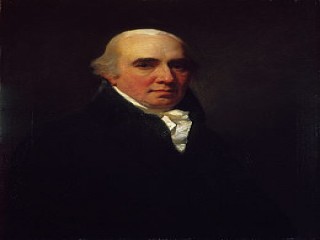
Dugald Stewart biography
Date of birth : 1753-11-22
Date of death : 1828-06-11
Birthplace : Edinburgh, Scotland
Nationality : Scottish
Category : Famous Figures
Last modified : 2011-03-01
Credited as : Philosopher, Reid's commonsense, Outlines of Moral Philosophy
The Scottish philosopher Dugald Stewart was a proponent of Reid's commonsense philosophy in Scotland.
Dugald Stewart was born on Nov. 22, 1753, in Edinburgh. His father was a professor of mathematics at the University of Edinburgh. At 13 young Dugald himself entered the university, studying moral philosophy under Adam Ferguson, who had been strongly influenced by Thomas Reid. Later, at the insistence of Ferguson, he went to hear Reid lecture at Glasgow University. Returning to Edinburgh, he became conjoint professor of mathematics with his father. In 1783 he married Helen Bannatyne, who died in 1787, leaving one son. Aer the death of his father he assumed the chair of mathematics, and a few years later (1785) he was made professor of moral philosophy. In 1790 he married Helen D'Arcy Cranston, by whom he had a son and a daughter. She was a brilliant and cultured woman who was an able critic of his writings.
Stewart's chief concern was to formulate a philosophy of mind through the use of the inductive method of Sir Francis Bacon. He intended to show that the phenomena of consciousness are connected by laws, discovered through the inductive method, and that such laws explain the constitution and operation of mind. Most of his writings do not depart from this major concern. His Elements of the Philosophy of the Human Mind was published in three volumes (1792, 1814, 1827). In 1793 he published his Outlines of Moral Philosophy, a summary of his views. In 1803 he was made editor of the Edinburgh Gazette, a position given to him because of his political loyalty. In 1810 he brought out Philosophical Essays and, a year later, Biographical Memoirs of W. Robertson, Adam Smith and Thomas Reid. He published Dissertation on the Progress of Metaphysical and Ethical Philosophy in two parts (1815, 1821). In 1822 he suffered a stroke from which he partially recovered. The stroke apparently affected his speech but left his mind clear. Shortly before his death, his View of the Active and Moral Powers of Man was published (1828).
Stewart died on June 11, 1828, while on a visit to a friend. As more than one interpreter has indicated, his most
appropriate memorial is found not in his writings but in his pupils, who included Lord Brougham, Lord Palmerston, Sir Walter Scott, and James Mill.
The Collected Works of Dugald Stewart was edited by William Hamilton, with a brief sketch of Stewart's life by John Veitch (11 vols., 1854-1860). A chapter on Stewart's life and work is in Henry Laurie, Scottish Philosophy in Its National Development (1902). Also helpful is Daniel S. Robinson, The Story of Scottish Philosophy (1961).
















